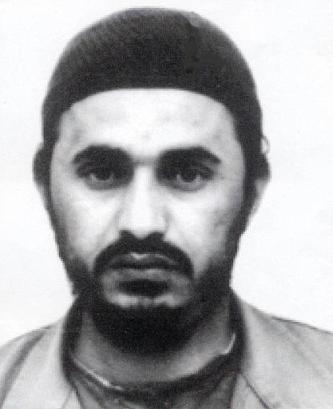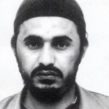Reports of Zarqawi’s Injuries Continue amidst Talk about Possible Successor
Publication: Terrorism Focus Volume: 2 Issue: 10

The reports of al-Qaeda leader in Iraq Abu Mus’ab al-Zarqawi having been injured have excited great interest in the Arab and international press. While there have been numerous ‘Zarqawi scares’ before now, what makes the present rumors more cogent is the source, the subsequent reaction of jihadist commentaries, and the credence placed in them by members of the Iraqi government, who have hitherto remained healthily skeptical of such reports.
The source of the present rumor was a statement made by Abu Maysara al-Iraqi, a name frequently encountered as spokesman for al-Zarqawi’s ‘Organization of al-Qaeda in the Land of the Two Rivers’. On May 24 a posting circulated on the al-Hesba forum called on “the Nation of Islam and brothers of Monotheism to pray for the recovery of our Sheikh Abu Mus’ab al-Zarqawi from wounds inflicted upon him in God’s Path,” and boasted of how “all the world over knows that injuries inflicted on our leadership are considered a mark of honor, and only provoke us to tighten the noose around the necks of the enemies of Almighty God, and reason to step up attacks upon them” [www.alhesbah.org].
This was followed by a number of competing statements on jihadi forums dismissing or giving credence to the announcement. One of the more interesting was posted on May 25 from one ‘al-Khalidi’ quoting information from “brothers close to the holy warriors in Iraq” detailing how two Arab doctors were treating Zarqawi outside Iraq for “gunshot wounds to the lung.” More details were provided on the al-Qal’a site by one ‘Saleh’ who indicated that “brothers close to the Iraqi mujahideen” had informed him that Zarqawi had been “transported secretly to a neighboring country a few days ago in a difficult operation, accompanied by a Saudi and a Sudani doctor, and that he was in stable condition after being shot through the right lung, causing him breathing difficulties” [www.qal3ati.net].
More details subsequently emerged from remarks from a Zarqawi lieutenant Abu Karrar made to the Washington Post stating that Zarqawi had been shot between his shoulder and chest during fighting with U.S. forces during the weekend of May 21-22 near the city of Ramadi. This was supported the next day by comments by Iraq’s interior minister Bayan Jabr who stated that he had been informed that Zarqawi had been injured five days previously, but without revealing the source of his information.
Pending the lack of full confirmation, a number of interpretations may be advanced to explain the reports. It could be the result of:
– disinformation — the role of this tactic has been discussed frequently on the jihadi forums — in an attempt to take the heat off the group;
– an attempt to stir up sympathy and galvanize support — the group relies on funding and manpower from abroad;
– a public relations preparation to talk up Zarqawi’s injuries, only to present him subsequently as heroically returning to the battlefield;
– an attempt to outmaneuver hostile media comment on what may be serious, if not terminal, injuries by stealing their thunder;
– an attempt to cushion the blow of Zarqawi’s death by preparing the mujahideen for the worst through extended discussions of ‘injuries’ at the same time as gaining time for selecting a successor.
The explanation that al-Zarqawi has already been killed is certainly the one preferred (although still pending confirmation) by Haitham al-Husseini, an aide to Abd al-Aziz al-Hakim, head of the Supreme Council for the Islamic Revolution (SCIRI) in Iraq. His conviction may be fed by reports earlier in May that U.S. troops had visited a hospital in Ramadi after receiving a tip-off that terrorists were being treated there, perhaps al-Zarqawi included. The pan-Arab daily al-Sharq al-Awsat ran a report early in the month to this effect, quoting the report by Zarqawi’s group that the leader had hidden in a hospital on April 27-28 following an armed exchange, and that U.S. troops failed to uncover his presence there [www.asharqalawsat.com]. According to the Arabic online magazine Elaph in a reported dated May 11, Zarqawi was seriously wounded as a result of an air attack on his hideout at al-Qa’im on the Iraqi-Syrian border (which accounted for the loss of over 120 insurgents), and that he had spent some hours in a Ramadi hospital before escaping with minutes to spare before the arrival of coalition troops [www.elaph.com]. The doctor who treated him detailed on arrest how Zarqawi had been in a state of severe exhaustion and loss of blood when he arrived at the hospital, and was removed despite the doctor’s insistence that he remain longer, due to the severity of his condition [www.annabaa.org].
However, that the horizons are narrowing for Zarqawi was already clear last February when troops came close to apprehending him when his car was stopped outside Ramadi. Zarqawi apparently fled on foot but left behind his laptop, which was held to contain a “wealth of information” on the al-Qaeda network in the country. The present announcement also comes at a time when U.S. forces have been sweeping for his supporters in northern Iraq’s al-Anbar province, centering on the town of Haditha, an insurgency hot spot.
A further indication of disarray comes from the confusion over the possible successor to leadership of the group. On May 25 a statement posted on the internet, in the name of Abu Doujanah al-Tunisi of the “media committee of al-Qaeda in Iraq,” spoke of one Abu Hafs al-Qarni as having taken over active leadership of al-Qaeda in Iraq. All that has been ascertained of al-Qarni is that he is a top military adviser to Al-Zarqawi, an ‘emir’ (senior commander) of the military committee, and a Saudi national. His name Al-Qarni may give some indication of his origin, in that it is common in the southern region of the Kingdom where the al-Qarni tribe inhabits. However not much more can be gleaned from since the sobriquet ‘Abu Hafs’ is a nom de guerre employed by several mujahideen leaders. The text spoke of a deputy appointed “to take the reins of leadership until the return of our sheikh.”
Unexpectedly there followed a denial a day later by the more familiar spokesman of al-Qaeda in Iraq, Abu Maysara, that any such a measure had been taken. Abu Maysara insisted that “we deny all responsibility for all the statements and analyses which some have made claim to, or any fabrications concerning the injury to our Shaykh … and we refute the claims to the election of one Abu Hafs or anyone else.” He insisted that the group had officially “only announced the injuries of our honorable Shaykh, in order to demonstrate the credibility of our information and to reassure our brothers after what was has been circulated concerning our Shaykh, that he has been killed” [www.qal3ati.net quoting www.alhesbah.org].
Contradictory statements like this may indicate either confusion or competition at the top. Abu Maysara himself may be part of this competition, if a report by the pan-Arab daily al-Hayat is anything to go by. On May 26 it reported that several candidates (none of whom was al-Qarni) were maneuvering to succeed Zarqawi, and the names Abu Maysara and Abu al-Dardaa were specified as potentials. However, one further interpretation, mulled by Elaph, is that the news both of al-Zarqawi’s transferal outside Iraq, and the strong demonstration of the presence of the “official information site” of the organization, are part of disinformation bids. The one to throw the coalition troops off the scent of al-Zarqawi and his dwindling group by making out that al-Zarqawi is safely in Damascus, the other to give the impression of a continuing, intact, centralized command structure [www.elaph.com].
The attention attracted by the reports is an indication of how central Zarqawi is considered to be to the insurgency in Iraq. Zarqawi clearly has an iconic importance well beyond his operational activity, which in statistical terms is not greatly significant. But given his iconic status, the mere announcement of the injuries on a known al-Qaeda site is a PR blow to the organization’s prestige, and strongly indicates that the more optimistic explanations of the rumors are likely to be misplaced. The mujahideen are more probably bracing themselves for the worst. Indeed, the intensity of the calls for prayers for al-Zarqawi’s recovery point to a preparation for a more important, fateful announcement.
In immediate operational terms, it is difficult to gauge how much effect the demise of al-Zarqawi will have. The al-Qaeda group and its affiliates have historically been successful in re-grouping and self-perpetuating, a fact acknowledged by the U.S. coalition commanders in Iraq. But there are growing signs that the increased pressure is hampering their leadership. Some weeks ago coalition authorities intercepted a letter, dated April 27, which complained of low morale in the al-Qaeda group due to a lack of clear leadership at the top, likely conditioned by the need to keep out of the grasp of the coalition troops. In addition to the undoubted propaganda victory Zarqawi’s incapacitation or loss will give to the Iraqi government, his successor will have great difficulty in emulating his international prestige and appeal, and in dismissing the foreboding of supporters (who are now having to get used to hearing of mass casualties and the arrest of senior cadres) that the coalition is now closing in finally on the Organization of al-Qaeda in the Land of the Two Rivers.




